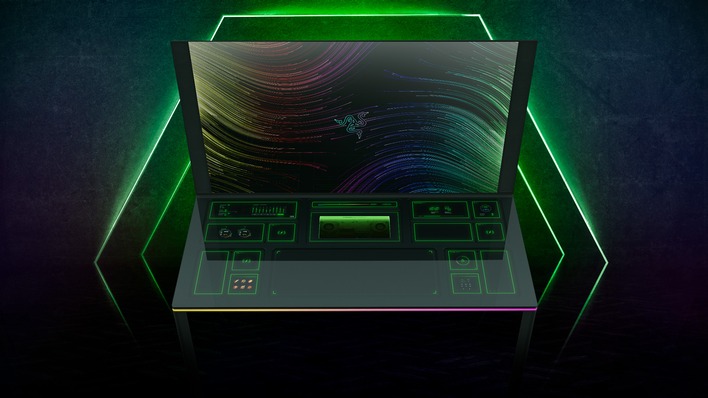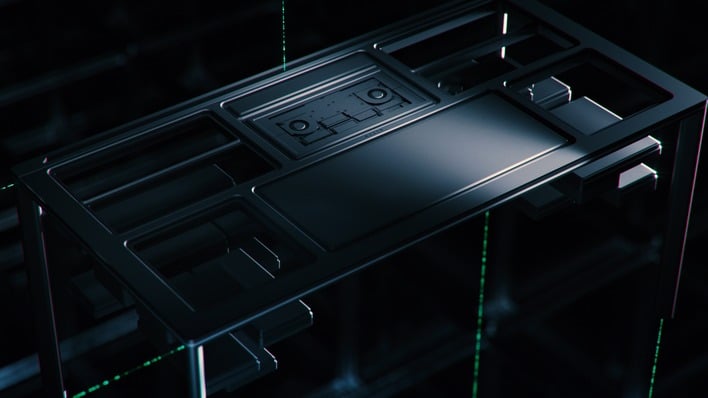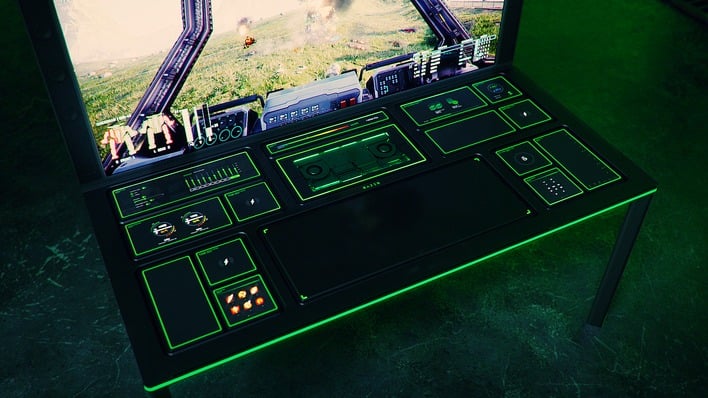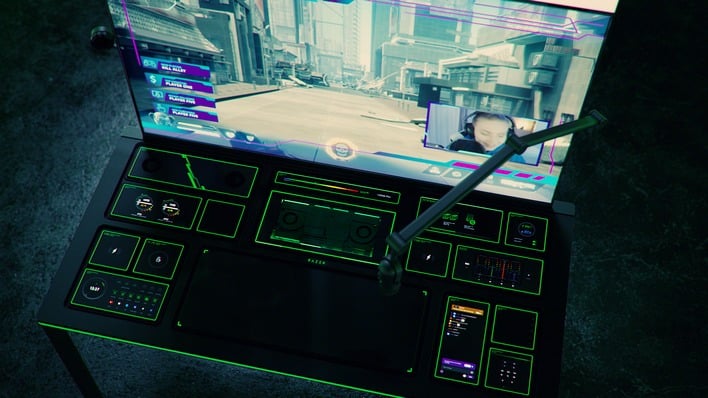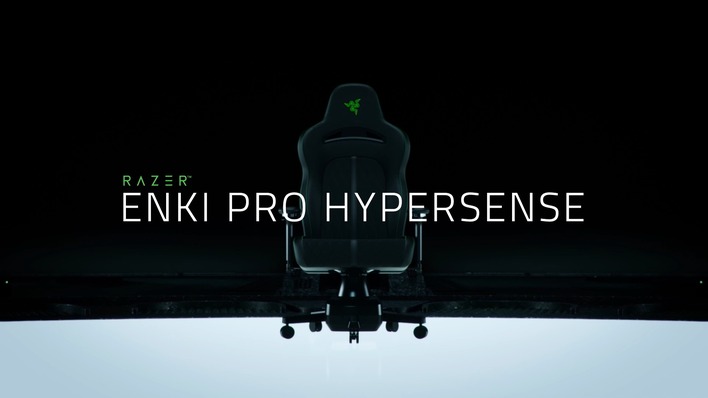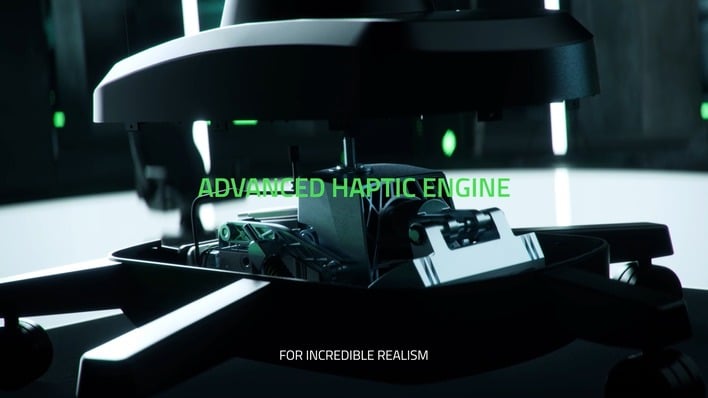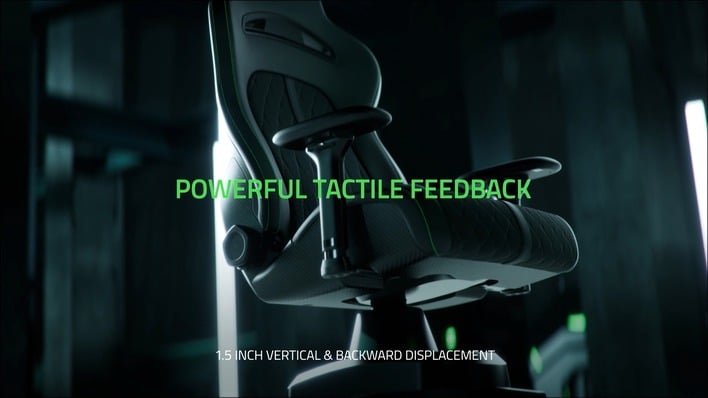Razer Unveils Enki Pro HyperSense Gaming Chair And Project Sophia Desk That Doubles As A Modular PC
Every year at CES, companies unveil their new products for the world to peruse. Some of these products are expected, a few are surprising, and occasionally you get the downright bizarre. Admittedly, most of the things shown in the latter category are specifically constructed to be showpieces, originally with the intention of drawing convention-goers to the company's booth.
 Razer is no stranger to the "wacky concept product" idea, and for this year's CES, the gaming lifestyle company brought along two odd ducks—though one is quite a bit stranger than the other. The Enki Pro HyperSense gaming chair with haptic feedback seems like it could feasibly become a shipping product, while the Project Sophia concept is very likely to remain just that. It's an undeniably cool idea, though.
Razer is no stranger to the "wacky concept product" idea, and for this year's CES, the gaming lifestyle company brought along two odd ducks—though one is quite a bit stranger than the other. The Enki Pro HyperSense gaming chair with haptic feedback seems like it could feasibly become a shipping product, while the Project Sophia concept is very likely to remain just that. It's an undeniably cool idea, though.
According to Razer, Project Sophia is its "vision for the future of gaming and home computing," and also supposedly the first "true gaming desk concept." We think a few folks (like Lian-Li) might take umbrage with that statement, but maybe "true" gives Razer some wiggle room. Essentially, Sophia is a desk with 13 modular compartments on the surface into which users could slot things like secondary displays, touchscreens, hotkey panels, pen input panels, audio mixer units, or external equipment like capture devices.
Other modules that Razer suggests for the idea include "high-fidelity audio," a "high refresh rate monitor" (separate from the 65" OLED, apparently), cameras, microphones, stream control decks, and productivity modules such as wireless charging pads, a "productivity hotkey module," and even a cup warmer. Naturally, the desk is ringed in RGB LEDs that sync up with Razer Chroma.
Razer says it designed Project Sophia as an answer to the frustration that "many people" experience when trying to use the same PC and workspace for "the multiple different uses required of their systems throughout the day." Supposedly, some folks use a lot of different peripherals and devices between work and play on the same PC. We're not convinced that a modular computer desk is the solution to this problem—if it even exists—but even curmudgeons like this writer have to admit that it does look pretty cool.
A Rumble Pak... For Your Gaming Chair
Razer's already been selling the Enki gaming chair for a couple of months, but the eye-wateringly-expensive Enki Pro hasn't quite hit the market yet. Razer's thousand-dollar chair should be pretty fancy; even still, the company's already come up with an even-fancier version: the Enki Pro HyperSense. As part of a partnership with haptic seating company D-BOX, the Enki Pro HyperSense is a top-tier gaming chair with haptic feedback.
Razer didn't give any details on pricing or release date for neither the Enki Pro HyperSense nor Project Sophia, but that's probably just as well. Given the standard Enki Pro goes for $1000, we shudder to think what the HyperSense-equipped version would cost, and Project Sophia purportedly includes a 65" OLED—to say nothing of the top-class Intel CPU and NVIDIA GPU. That said, if either of these products do end up coming to market, we'll surely let you know.

